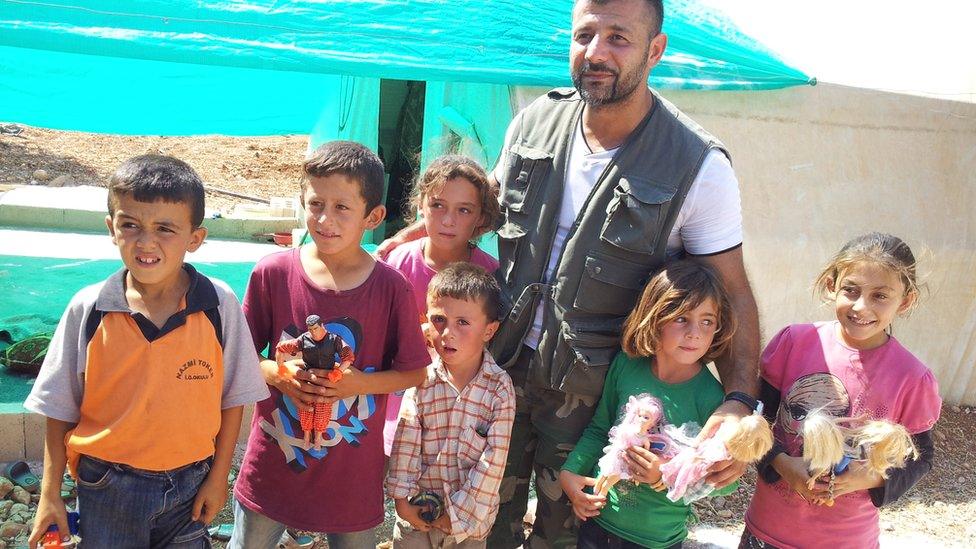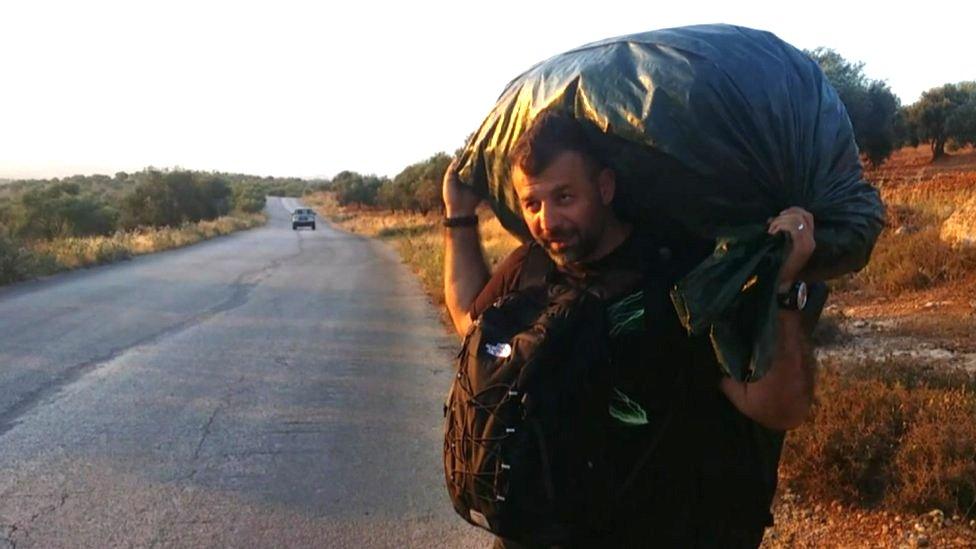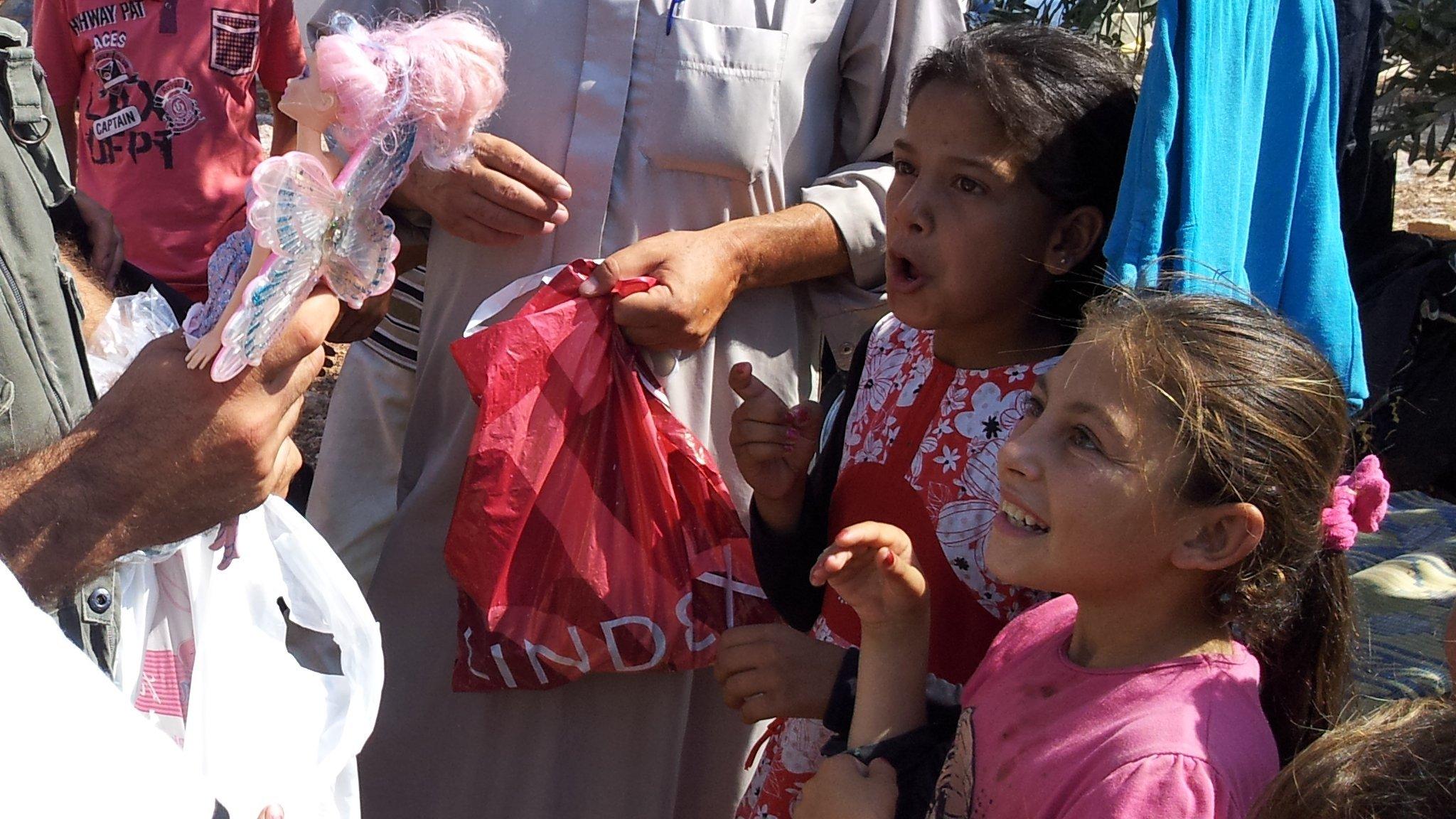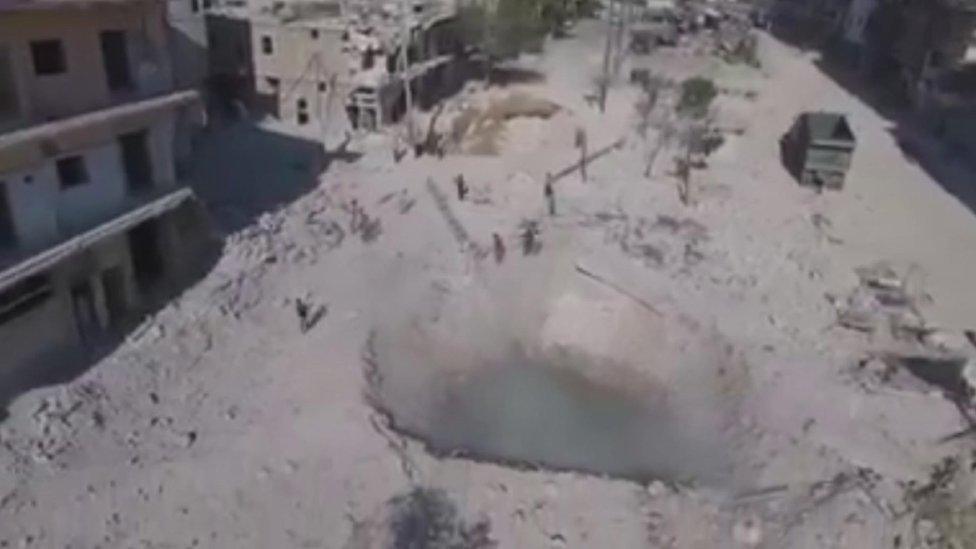Syria war: The toy smuggler bringing bags of joy to children
- Published
Rami visits children who have left besieged Darayya: "They hadn’t seen a toy for four years"
For the girls, it is Barbie dolls. The boys love footballs, cars and teddy bears.
Rami Adham knows exactly what brings the biggest smiles to the faces of Syrian children.
The Finnish-Syrian father-of-six has become known as the "Aleppo toy smuggler".
He says the feeling of handing out toys to children living through a war that is older than many of them is "indescribable".
"The smile they give you back, the gratitude… you help them forget that they have lost their homes, their schools, their toys."
With over 28 visits to Syria from Helsinki in the past four years, he has honed the logistics of his operation.

Rami says the toys help the children forget the experiences of war - at least momentarily
The Barbies are heavy - he says he crams at least 100 into his hand luggage. He also packs hundreds of soft toys, chosen because they pack down well into vacuum bags and do not break.
After the flight from Finland to Turkey, he carries up to 70kg (155lb) of toys on foot through the mountainous border region to cross into Syria, as the official border is closed to most traffic. Sometimes it takes 16 hours - other times he manages to arrange a shorter route.
Rami helps provide food and other basic supplies, through the Finnish-Syrian Association, which he has founded to gather donations.
He is also trying to build schools in refugee camps. But before his first trip, his three-year-old daughter suggested taking toys too, and it is the children's response that now keeps him going back.
"That is this feeling that nourishes me, that charges my batteries," he says.
"These little heroes that represent Syria's future are to me extremely valuable to preserve, to give them a moment out of the fear and instability," he says.

Rami Adham has walked up to 16 hours to cross the border on some of his trips to Syria
One six-year-old girl sticks in his mind. She did not talk at all. He was told she had watched as government forces raided her home, shut her father in a cupboard and set fire to it. They took her mother away too, no-one knows where.
"She screamed so much she lost her voice," he says. He has visited her several times, and given her a Barbie and soft toy pony. "Her reaction is always the same, a beautiful smile."
Many others he meets have been orphaned by the war. "There's no school, nothing for them to do, they are constantly barricaded in a couple of floors or underground," he says.
"The kids there are not afraid of death anymore. They wish to die instead of being injured - they say when you die you don't have to worry any more."

Rami: "It's indescribable... the smile they give you back, the gratitude"
Rami has recently returned from a 12-day trip to Syria. He took toys and supplies to several areas, including a camp which houses people who have recently left the town of Darayya after four years under government siege.
But he was unable to find a safe way into the besieged east of the city of Aleppo, the city where he grew up, which is usually central to his visits.
"Words really fail to describe it - it's not easy when you see your city right in front of you, after travelling all these thousands of miles… I feel like I've deserted my people in Aleppo. I feel like I've done nothing."
As the week-long ceasefire ended, Rami left to return to Finland and the headquarters he has set up in in the city was badly hit in an air strike. Nine people died, including two close friends of his.
"Now literally, kids are swimming in the crater that bomb made," he says.

Two of Rami's close friends died in an air strike that hit his office
Rami hopes to return to Syria within a few weeks, but says he is pessimistic.
"I've heard of so many people that I know who've died. I'm really scared - I'm very nervous about the next trip," he says.
But if he makes it back, "toys", he says, "are the first thing on the list".